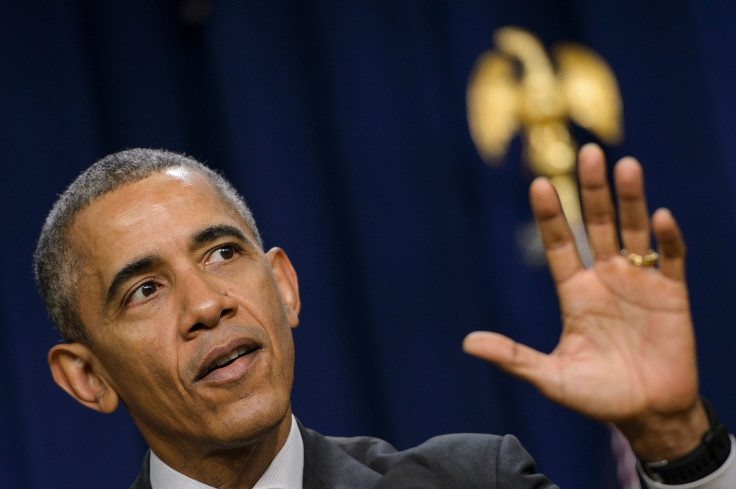Deadline To Sign Up For Obamacare 2016: Changes To Affordable Care Act Include High Penalties For Uninsured

As the U.S. deadline to sign up for federal healthcare for 2016 approached Sunday night, people hurried to sign up for coverage to avoid penalties for the uninsured. The deadline was 3 a.m. EST Monday as citizens throughout the nation looked to avoid higher penalties in the New Year by signing up for health insurance.
"People want insurance and need insurance. But there are definitely a lot of people who have been goosed into buying insurance because of the penalties we were talking about," Alison Kodjak, NPR's health correspondent said in December ahead of the year-end deadline. "And people are really complaining that some of these plans are too expensive, they have high deductibles, they have high co-pays."
After the deadline, people can only get insurance if they can prove there were exceptional circumstances keeping them from signing up or went through a major family change, such as a marriage or the birth of a child.
Some of the biggest changes in the Affordable Care Act, aka Obamacare, taking effect in 2016 are high penalties for not having healthcare, triggering a wave of people signing up for coverage through the government’s system throughout December and into January. Penalties now stand at either 2.5 percent of a family’s income, or $695 per adult and $347.50 per child, for a total of up to $2,085. The law has subsidies in place so that families who cannot afford to pay in full can receive stipends for coverage though many Americans have said the subsidies are not enough to cover the cost of care.
Multiple changes have been made to the law since it was first passed in March 2010, and the Affordable Care Act, has looked to provide universal healthcare to all of the country. Spearheaded by President Barack Obama and heavily criticized by Republican members of Congress, the legislation has provided coverage to approximately 11.7 million people, data from the U.S. Department of Health and Human Services showed.
One of the most significant of the reforms for 2016 is the definition of a small employer. Until Dec. 31, a small employer was defined as a company that had 1-50 employees. That definition has been adjusted to 1-100 employees. The Employer Mandate forced companies with more than 100 employees that did not offer healthcare to 95 percent of their workers to pay a penalty. Companies with fewer than 100 employees will now have to comply with the mandate or face penalties as well.
Republican front-runner Donald Trump slammed the healthcare program in an interview with ABC News Sunday. "If people have no money, we have to help people," Trump said, adding, "But that doesn't mean single-payer. It means we have to help people. If somebody has no money and they're lying in the middle of the street and they're dying, I'm going to take care of that person."
Meanwhile, Democratic leaders including Obama and former Secretary of State Hillary Clinton took to Twitter to voice their support for the healthcare signup. Clinton urged people to sign up Friday, with the goal of having 100 percent of the U.S. covered, while Obama called on people to remember to get covered before the deadline.
"Health care is a basic right. We are 90 percent covered—we gotta get to 100 percent." https://t.co/ySCag7eW2j
— Hillary Clinton (@HillaryClinton) January 30, 2016If you or someone you care about needs affordable health coverage, head over to https://t.co/A3qPizu4p2. Today's the last day to sign up!
— President Obama (@POTUS) January 31, 2016The deadline in December for coverage that started Jan. 1, was extended for several days to accommodate the hundreds of thousands of people who were signing up online — the most traffic the website ever had seen, said Kevin Counihan, who oversees the marketplace at the U.S. Department of Health and Human Services. “Hundreds of thousands have already selected plans over the last two days and approximately 1 million consumers have left their contact information to hold their place in line,” Counihan told the Los Angeles Times in December.
While data was not yet available for the number of people who signed up for health insurance in the days leading up to the 2016 deadline, the healthcare.gov website was in working order while wait times for help over the phone reached high levels. In New York state the estimated wait time to speak to an insurance counselor was more than 30 minutes.
© Copyright IBTimes 2025. All rights reserved.






















